
China's State Council Information Office released a white paper titled "China's Green Development in the New Era" on Jan. 19, 2023.
The white paper mainly focuses on seven aspects of China's
green development, including the country's commitment to green growth, a green territorial configuration, adjustment and improvement of the industrial structure, application of green production methods, eco-friendly living, institutions and mechanisms for green development and efforts to build the earth into a beautiful home.
Here are the highlights of the third part of the white paper, themed with "Adjusting and Improving the Industrial Structure."
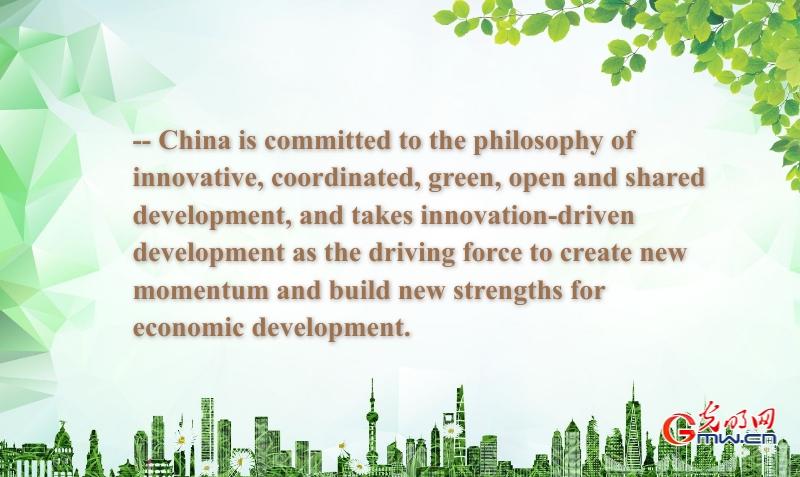
-- China is committed to the philosophy of innovative, coordinated, green, open and shared development, and takes innovation-driven development as the driving force to create new momentum and build new strengths for economic development.
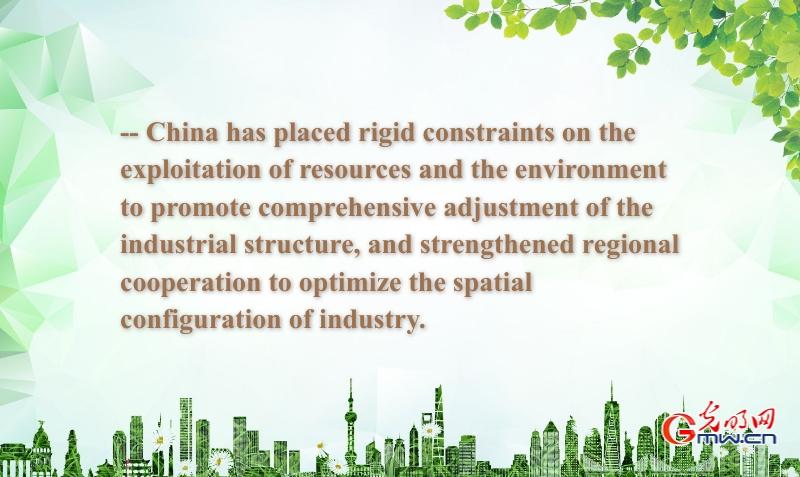
-- China has placed rigid constraints on the exploitation of resources and the environment to promote comprehensive adjustment of the industrial structure, and strengthened regional cooperation to optimize the spatial configuration of industry.
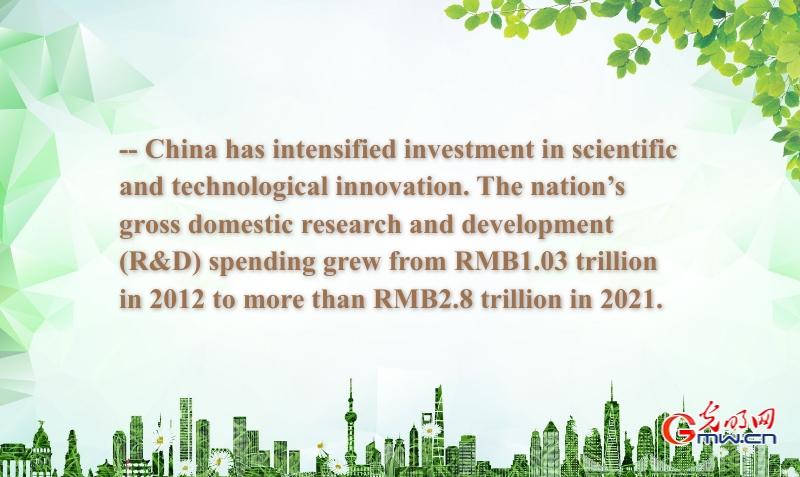
-- China has intensified investment in scientific and technological innovation. The nation’s gross domestic research and development (R&D) spending grew from RMB1.03 trillion in 2012 to more than RMB2.8 trillion in 2021.
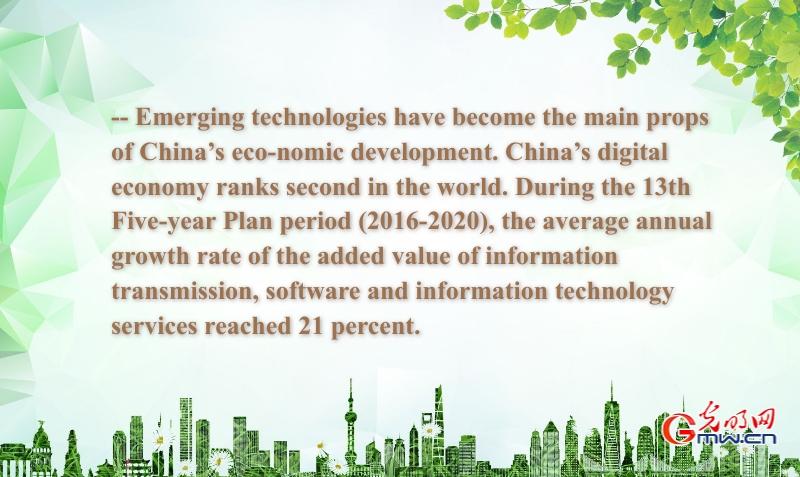
--Emerging technologies have become the main props of China’s eco-nomic development. China’s digital economy ranks second in the world. During the 13th Five-year Plan period (2016-2020), the average annual growth rate of the added value of information transmission, software and information technology services reached 21 percent.
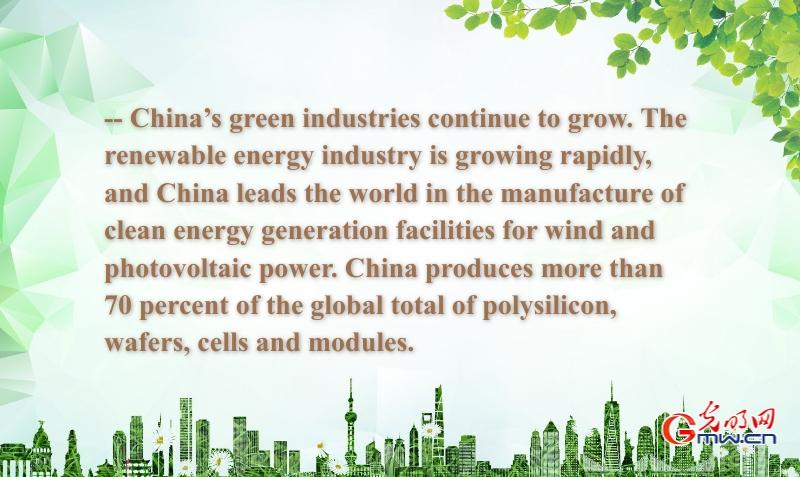
--China’s green industries continue to grow. The renewable energy industry is growing rapidly, and China leads the world in the manufacture of clean energy generation facilities for wind and photovoltaic power. China produces more than 70 percent of the global total of polysilicon, wafers, cells and modules.
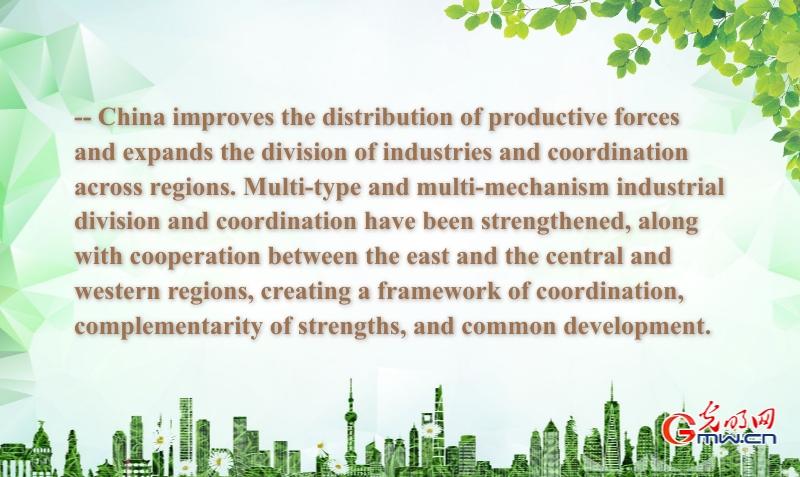
--China improves the distribution of productive forces and expands the division of industries and coordination across regions. Multi-type and multi-mechanism industrial division and coordination have been strengthened, along with cooperation between the east and the central and western regions, creating a framework of coordination, complementarity of strengths, and common development.
